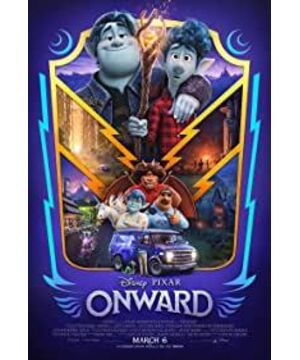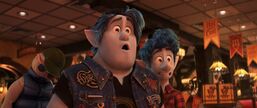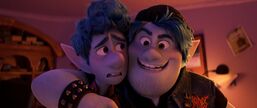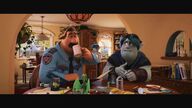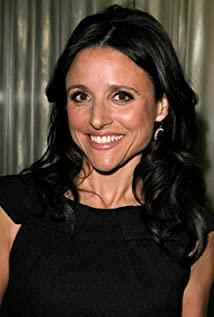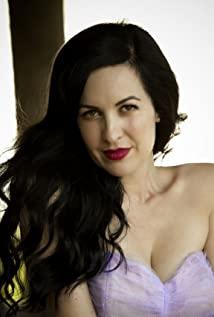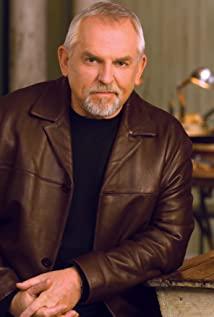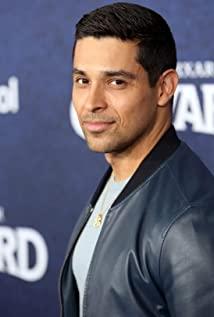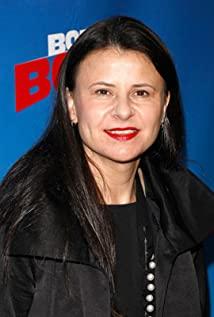This 1/2 magic makes me sleepy when I see 1/2, especially when it goes from a family movie to a road movie. But the last 1/2 of it really radiated the power of magic, which freed me from the sleepiness and moved me and resonated.
I thought it was to describe the relationship between father and son, but unexpectedly it turned into a story of brotherhood. This small accident finally turned into tears unceremoniously. The elf family described in the film is a portrayal of thousands of ordinary families in the United States. Parents and children, while maintaining mutual care and independence. Everyone fits into the other's life just right but retains their pure self, seeking the other's understanding without trying to interfere with the other's thoughts.
For families with a second child, the film may be about something that happened in the magical world. Two adolescent children, their behaviors are constantly changing between doubting themselves and affirming themselves. They seem to have mature but youthful thoughts, that seem to understand but are ignorant, that seem to be clear but ambiguous attitudes, everything is so Unreal yet real.
For families whose parents are divorced or who have lost one of their parents, the film also explores a fairly common possibility – remarriage. Children want to find true family love, but parents want to have a new emotional start. No one can say the other is wrong. As long as they love each other, they can finally understand.
The film does its best to sing the praises of the father's position. The meaning of the word "father" to a child, its role in the growth of a child, and its value to the entire family are either strongly or implicitly reflected. Whether it is the highly original father who only has the lower body, or the last meeting full of longing but deliberately keeping a distance, the handling of the film is exquisite.
In the film, magic has simply become an "intangible cultural heritage", which is what we often call intangible cultural heritage. Only a few people still understand it, use it, and inherit it. Most people have been brainwashed by modern technology and have lost their traditions. This is a strong reflection of today's world. We really need magic inheritors like the protagonist's father, people who believe in magic persistently like my brother, and people who inherit the genes of magicians and are willing to practice it like my younger brother.
With the development of industrial society, everyone does not have to work hard to inherit those handed down skills, but only needs to learn the skills of socialization. Much of what the protagonist writes on a small note for the first time is this kind of socializing ability, like talking aloud, learning to drive, inviting friends to a party, and so on. He did live up to his expectations at the beginning, and he didn't do it all. This made him return to the inheritance of magic, the family's handed down craftsmanship. And as his magic advanced, his socialization skills seemed to be self-taught.
So "return" is another resonant word of the film. Let everyone return to their own characteristics, rather than those rules that have been soaked in by the dye vat of society. Just as the manticore hides his bravery and ferocity, and is willing to become a wage earner in an industrialized society, he is full of awkwardness and suffocation, and he dares not face his true self anymore.
Animation Film Critics Club inside
View more about Onward reviews


